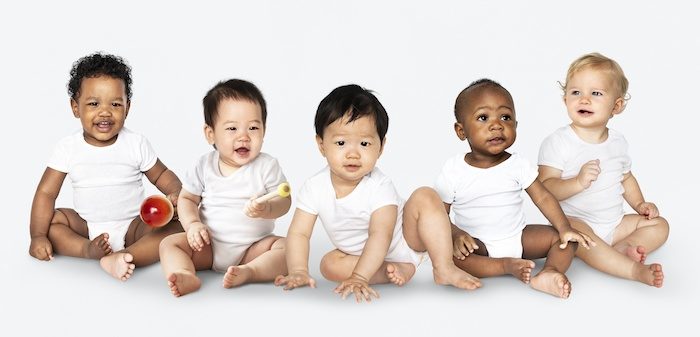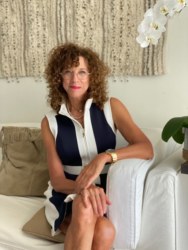
WholeFoods Magazine
Innovating Baby Formula

It figures that the weekend after Roe vs. Wade was reversed and the weekend before my son was sworn into the Bar (and it’s been decades since formula was an issue for us), I would have a major attitude adjustment regarding infant formula. Until then, I had never quite gotten over the Nestle Formula debacle, but times are a changin’.
"Formula isn’t a choice for many babies, it’s a necessity and a life preserver,” says lactation expert Mallory Whitmore. According to the data from the Department of Labor, “roughly 25% of women are back at work within two weeks of birth. That is not enough time to establish a full milk supply!” Additionally, many women who are hourly workers or who work for a smaller employer (fewer than 50 employees) are not guaranteed breaks to pump at work. And even if they receive pumping breaks, they're not required to be paid. As a result, many women effectively lose money on breastfeeding once they return to work, particularly because these are the same lower-income women that can access formula for free or discounted via the WIC (Women, Infants & Children) assistance program.
According to the CDC, 75% of families have introduced formula in some capacity by 6 months of age. “Until we have policies that support families who want to breastfeed-- including paid/protected maternity and paternity leave, greater protections for pumping moms, comprehensive free/covered lactation support, even more affordable childcare, I doubt those numbers are going to get any better,” said Mallory. “ We have a government that espouses their desire for higher breastfeeding rates, but that does very, very little to empower parents to actually do so. Until that happens, parents are going to continue to formula feed en masse.”
Meeting formula needs
One brand that has helped to revolutionize the formula category is Bubs Australia, a 17-year-old infant and toddler nutrition company. The company was started by a mom of three, Kristy Carr, in her kitchen in Sydney as a remedy for the oldest of her three children who had intestinal issues. Nothing doctors were prescribing worked, so she developed the original formula. In 2021, the company’s U.S. label, Aussie Bubs, launched a range of toddler formulas through major retailers. In June 2022, Bubs committed to importing 1.25 million tins of infant formula to help with the crisis through Operation Fly Formula.
The Bubs Australia and Aussie Bubs teams are working closely with the U.S. Government and the country’s largest retailers to ensure they get infant formula to the communities that need it most. “We are also in deep discussions with the WIC program director in every state,” says Kristy. "So far, have been approved in Texas."
Bubs Australia’s vision: to create new generations of happy, healthy bubs and families through its range of premium Australian infant nutrition and goat dairy products. The line includes specialty and nutritional milk powder products for the whole family. Bubs Goat Milk Infant Formula and Bubs Organic Grass-fed Cow’s Milk Infant Formula, along with organic baby food, cereals, toddler snacks, and Vita Bubs infant and children’s vitamin and mineral supplements, cater for all feeding occasions and stages of development from newborn through to childhood.
Bubs Australia is the leading producer of goat dairy products in Australia with exclusive milk supply back to the farm gate. Bubs is the only infant formula in the world to be based on Australian goat milk. Bubs products are widely sold in major supermarkets and pharmacies throughout Australia, as well as exported to China, Southeast Asia, the Middle East and the U.S.
Raising Awareness
To help spread the word, Aussie Bubs held an influencer weekend at a goat farm in Gilbertsville, NY. It was beautiful and fragrant, and the evening sparkled with fireflies, stars and a raging bonfire. It was there, close to dozens of baby goats, alpacas and sheep dogs, that I learned about infant formula.
Bubs Australian Goat Milk is their most popular formula globally. In the US, so far, it’s the Organic 365-Day Grass Fed Cow Milk. Aussie Bubs is tested by the Clean Label Project, a national non-profit with the mission to bring truth and transparency to food and consumer product labeling.
Clean Label Project Testing
Jaclyn Bowen, a food safety and quality systems engineer and executive director of Clean Label Project, said, “In the absence of federal regulation, unless brands voluntarily choose to think about food safety differently and purchase ingredients differently for the health and safety of my family and yours, these contaminants legally can and will end up in finished products. Aussie Bubs is a Clean Label Project Purity Award recipient because of their commitment to ingredient quality and safety and frankly that commitment shows in the finished product testing.”
Clean Label Project independently samples and tests their products to make sure they stay true to their word and continue to go above the minimum federal food safety requirements and meet the strict voluntary requirements of the Clean Label Project Purity Award Code of Practice.
Clean Label Project tested the top 91 selling infant formulas in America and benchmarked the results. To qualify for the purity award, product test results must show that the product is quantitatively superior to the status quo.
Community Care Efforts
Dennis Lin, Executive Chairman of the Board of Bubs Australia, and Kristy have a project in Sumba, Indonesia called “Project Smile.” They are not just donating products.
“We will focus on education on nutrition and using locally sourced ingredients where possible, starting from pregnant mothers through to their babies and hopefully extend through to the household,” says Lin.
Serving Up Goodness
The influencer weekend included a cook-off of dishes made with Aussie Bubs. One delicious dish: Raspberry Nutella Wonton created by an award-winning cookbook author and culinary personality. This recipe is adapted from "Katie Chin's Everyday Chinese Cookbook."
Raspberry Nutella Wonton
Ingredients
- 1 cup Nutella
- 1/4 cup plus 1 Tbsp Aussie Bubs Toddler Formula, divided
- 1/3 chopped fresh raspberries
- 1 egg, lightly beaten
- Oil for frying
- 1 cup heavy whipping cream
- 2 teaspoons granulated sugar
- 1/2 teaspoon vanilla extract
- Store-bought chocolate sauce, such as Whole Foods Chocolate Syrup
- Confectioner’s sugar & Aussie Bubs Toddler Formula combined for garnish
- Store-bought round dumpling wrappers
Directions
- Combine the Nutella with the Aussie Bubs formula. Fold the raspberries into the Nutella mixture until combined. Lay wonton skins out on a work surface. Brush edges of each wonton wrapper with egg and place 1 scant tablespoon of chocolate-hazelnut raspberry mixture onto each wonton. Fold wrappers in half over chocolate and press edges firmly to seal.
- Meanwhile, make the whipping cream. Using an electric hand mixture, whip the cream, sugar, 1 Tbps Aussie Bubs formula and vanilla extract until fluffy. Set aside.
- In a wok or deep skillet heat 2 to 3 inches (5 - 7.5 cm) of the oil to 350°F (175°C). Deep-fry the wontons until golden brown, 1-2 minutes turning occasionally. Place on a paper towel lined sheet pan. Transfer to a platter and dust with confectioner’s sugar and drizzle with chocolate sauce.
COOK’S NOTE:
If you only can find square dumpling wrappers, use a cookie cutter to make a round shape.
...and even more deliciousness!
Here is another recipe from Stephanie Middleberg, best-selling author of The Big Book Of Organic Baby Food: Baby Purees, Finger Foods and The Big Book Of Organic Toddler Meals.
Gluten-Free Goat Milk Spinach Waffles
Yield: about 3 cups batter (6 waffles in my waffle maker)
Ingredients
- 1 cup goat milk
- 2 large eggs
- 1/2 teaspoon vanilla extract
- 1/4 cup coconut sugar
- 1/4 cup ghee, coconut oil, or unsalted butter, melted and cooled (or use a liquid fat like avocado oil or olive oil)
- 1 packed cup baby spinach
- 2 1/4 cups almond flour
- 1/4 cup ground flaxseed
- 1/4 teaspoon fine sea salt
- 1/2 teaspoon baking powder
- 1/2 teaspoon baking soda
- Cooking spray
Directions
- Preheat your waffle iron. In a blender or food processor, combine all of the ingredients except the cooking spray; blend until smooth. Batter will be thick.
- Mist the waffle iron with cooking spray. Portion about 1/2 cup batter into your waffle iron and cook as the manufacturer instructions direct. Repeat with the remaining batter, misting the iron with cooking spray between batches.
COOK'S NOTES:
- I found that these got pretty dark at the highest setting on my waffle iron. Lowering it to 2 settings below the highest seemed to work the best.
- If you want to keep the rest of the waffles warm while you cook all of the batter, preheat the oven to 200ºF. Place the cooked waffles directly on the oven rack to keep them warm and crisp while you cook the remaining waffles.
- Let any leftovers cool completely, then wrap and refrigerate or freeze. Reheat in a toaster oven.
Cinnamon-Honey Butter
Yield: About 1/4 cup
Ingredients
- 4 tablespoons unsalted butter, at room temperature
- 2 tablespoons raw honey
- 1/2 teaspoon cinnamon (or more, if needed)
- 1/8 teaspoon fine sea salt
Directions
In a small bowl, combine all of the ingredients and mash with a fork until well combined. Taste and add more cinnamon if desired. Serve right away, or cover and refrigerate to serve cold.








